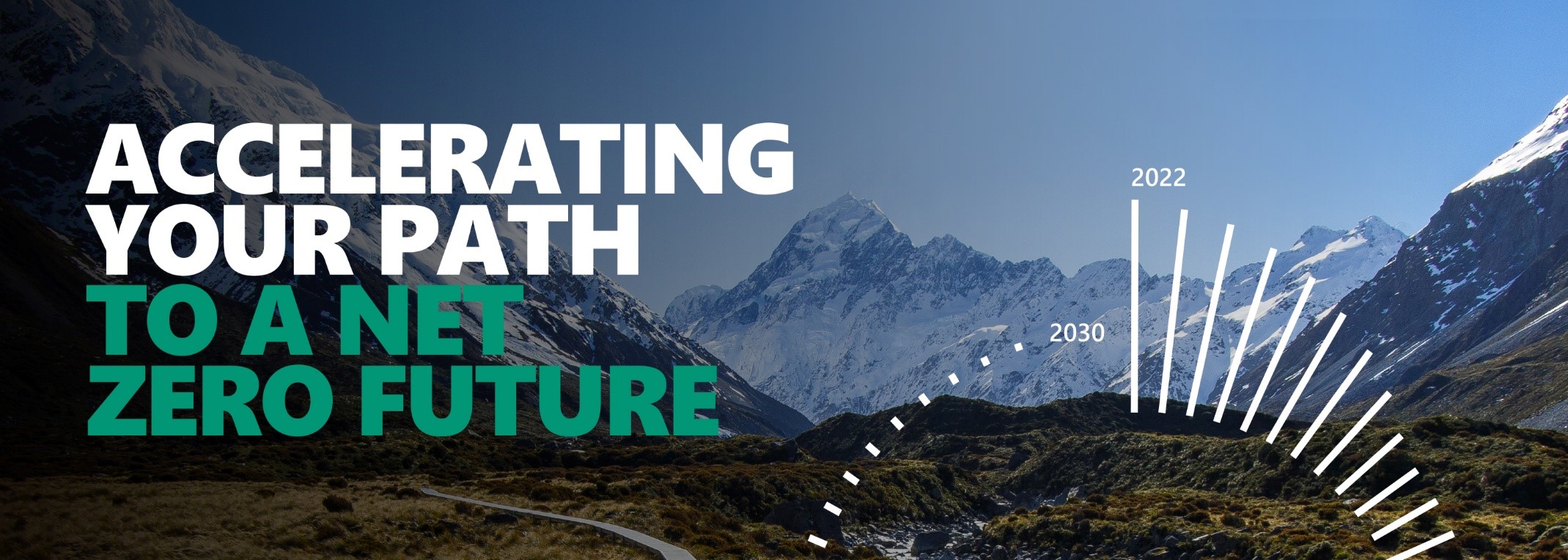Gap between environmental goals and reality shows where local organisations are struggling, and where work must focus to achieve New Zealand’s emissions targets
- New Zealand’s net emissions are 60% higher than in 1990
- A third of NZ businesses say their organisation is set to miss its 2050 net zero carbon target without help
- The greatest barriers to reaching sustainability goals are lack of in-house expertise and funding to implement sustainable practices
- Different sectors have wildly varying perceptions of the cost of sustainable transformation, with financial services businesses forecasting double the cost of agriculture, transport and energy companies
Auckland, New Zealand, 14 March 2022 – Microsoft New Zealand has today released an extensive study of local organisations’ performance on sustainability and carbon reduction, which highlights where the most support is needed to reach our net zero carbon goals.
Led by Dr Chris Brauer from Goldsmiths (University of London), the Accelerating the Journey to Carbon Zero report noted that while 76 per cent of local businesses planned to be carbon neutral by 2050, the date enshrined in the Zero Carbon Act, New Zealand’s net emissions had grown 60 per cent since 1990, one of the fastest growth rates in the world. Of the more than 800 business decision-makers and employees surveyed across all industries in Aotearoa, around a third said their organisation was set to miss the 2050 target without help.
Even more concerning, the real deadline for many businesses is not 2050, but 2030, given that actions taken today are already affecting future emissions, such as the materials used in buildings that last 50 years or more.
“At the COP26 Summit in Glasgow last year, the New Zealand government committed to halving greenhouse gas emissions by 2030, to ensure we’re not emitting more than our “fair share” of carbon. While we Kiwis pride ourselves on punching above our weight on the world stage, we want to be doing it for the right reasons. That’s what makes it so important to measure businesses’ emissions so we know where we are and how to chart out progress. We also need to identify where the barriers between intention and implementation are, so we can work on helping more organisations reach their sustainability goals faster,” said Russell Craig, National Technology Officer for Microsoft New Zealand.
71 per cent of companies in the study received an average score on the sustainability scorecard, which measured seven key areas:
- Connected sustainability (ensuring business strategy is connected with sustainability goals)
- Decarbonisation
- Funding and skills
- Accounting for natural capital (considering the value of natural resources in operations)
- Infrastructure
- Supply chain resilience
- Technological innovation.
Many had future-proofed their physical infrastructure against the impacts of climate change, but lagged behind on applying technological solutions to improve their sustainability.
The greatest challenge identified for New Zealand businesses was getting enough in-house expertise and resources to enable their transition to net zero carbon. The report found that less than half (43%) of organisations had enough funding to make their plans possible, while just 38 per cent had enough workers with the right skills to implement their environmental sustainability strategies and 29 per cent had the right technology in place.
However, the study revealed surprising differences across regions and industries when it came to estimating the costs. On average, a typical organisation in New Zealand expected that implementing their environmental sustainability strategy would cost them nearly nine per cent of their current revenue each year. Yet many of those industries with the highest emissions currently, including agriculture, transport and logistics, mining and energy, had the lowest estimates in the sample, at around six per cent. Banking and finance companies’ estimates were double that on average.
“There’s a real disparity when it comes to the perceived cost of sustainability measures, which doesn’t necessarily reflect the reality. It’s worth noting that many of our respondents believed strong performance on environmental measures would actually be essential to their industries’ competitiveness and resilience in the future,” said report lead Chris Brauer, Director of Innovation at Goldsmiths University.
The report’s key recommendations to accelerate business sustainability included measuring individual businesses’ emissions, more innovation and access to finance for sustainable transformation, a focus on tech adoption to enable change, better data capture and accountability, investment in skilling and building in-house expertise, replacing existing products and services and greater cross-sector collaboration.
Rachel Brown, CEO of the Sustainable Business Network, who was interviewed for the study, agreed:
“New Zealand is getting much better at collaborations; there’s been a real recognition in the last few years that collaboration is the way to go. The tricky thing is how do we do that genuinely, and not just take the ticking boxes approach? It’s about acknowledging there’s elements we can learn from each other, and how do we do it better?” she said.
To read the full report, visit https://aka.ms/NZ-Sustainability-Journey

